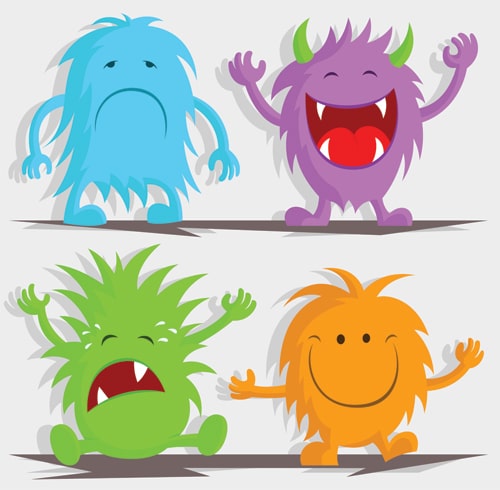 There are lots of good reasons to eat more fruits and vegetables. They’re low in calories and rich in all the good things your body needs – vitamins, minerals, and cell-protective antioxidants. Not to mention they contain a wealth of phytochemicals that could lower your risk for diseases like cancer – but what can they do for your mental outlook? Plenty, according to the results of a new study. Munching on veggies and fruits may give your mood a boost and make you feel more upbeat and energetic. Sounds like a worthwhile reason to hit the produce aisle, doesn’t it?
There are lots of good reasons to eat more fruits and vegetables. They’re low in calories and rich in all the good things your body needs – vitamins, minerals, and cell-protective antioxidants. Not to mention they contain a wealth of phytochemicals that could lower your risk for diseases like cancer – but what can they do for your mental outlook? Plenty, according to the results of a new study. Munching on veggies and fruits may give your mood a boost and make you feel more upbeat and energetic. Sounds like a worthwhile reason to hit the produce aisle, doesn’t it?
More Fruits and Vegetables – Better Mood
In a study published in the Journal of Health Psychology, researchers asked 281 young adults to keep an online food diary for three weeks, listing the foods they ate. Each evening during the study, they completed a questionnaire asking about their mood, energy level and how they felt overall.
After tabulating the results of this 21-day study, they found participants who ate more fruits and vegetables reported feeling happier, more energetic and less stressed than those who ate less of these healthy foods. They also failed to find this link with any other type of food that participants ate. Just as interesting was the observation that when the participants ate more vegetables and fruits their mood improved the following day, further suggesting a direct link.
One caveat. The amount of fruits and vegetables researchers found you’d have to eat to get these benefits is between 7 and 8 servings a day, well over the amount most people eat. Most people get less than half that amount in their daily diet. Is that why there are so many grouchy people?
How Might Vegetables and Fruits Improve Mood?
This finding is intriguing, but it doesn’t show cause and effect, only that eating more veggies and fruits is linked with a more upbeat mood and an improved sense of well-being. You have to consider the possibility that happy people simply eat more produce, but as researchers point out, this finding merits further research.
This isn’t the first study to show a link between produce consumption and mood. In a study published in Psychosomatic Medicine, researchers measured nine types of antioxidants in the blood of 1,000 adults. After asking the participants to complete a questionnaire, they found those with an upbeat, optimistic outlook on life had higher levels of carotenoids in their bloodstream.
Carotenoids are antioxidants most abundant in fruits and vegetables that are orange in color. Squash, sweet potatoes, carrots, apricots and papaya are good sources. Leafy greens are another good source, although they aren’t orange in color. That’s because they’re so rich in chlorophyll that it masks the orange of the carotenoids.
The best-known carotenoid is beta-carotene, abundant in carrots. Carotenoids are known for their immune-enhancing powers and their ability to protect cells against free radical damage. They’re also important for eye health and may reduce the risk of cataracts and vision loss due to macular degeneration, a common disease of the retina that causes a gradual loss of central vision.
Still another study looking at the eating habits of 80,000 British adults found those who enjoyed a diet rich in fruits and vegetables had greater life satisfaction scores and reported feeling happier. Again, the magic number seems to be 7 or more servings of veggies and fruits a day to get the benefits.
Conduct Your Own Experiment
It’s rarely a good idea to change your diet based on a few studies, but there are so few downsides to eating more fruits – this is one you confidently act on. Make a conscious effort to eat 2 servings of a fruit or vegetable at every meal and have at least one other serving as a snack. Then see how it affects your mood.
Choose brightly colored veggies and fruits in all colors – green, red, orange, yellow and purple to get a diversity of phytochemicals, vitamins and minerals. When you do, you’ll consume fewer overall calories and more fiber to help with weight control. Just remember – French fries are not a vegetable! Enjoy the many health benefits of eating more produce.
References:
Science Daily. “Many Apples a Day Keep the Blues Away”
Nutr Clin Care. 2002 Mar-Apr;5(2):56-65.
Is Psychological Well-being Linked to the Consumption of Fruit and Vegetables? Blanchflower, Oswald and Stewart-Brown.
WebMD. “Fruits Plus Vegetables Equals Happiness?”
World’s Healthiest Foods website.
Related Articles By Cathe:
Are Raw Vegetables Better for You?
5 Reasons Eating Seasonal and Local is Better
Why the Fruits & Vegetables You’re Eating Aren’t as Nutritious as They Could Be
6 Ways to Get More Health and Nutritional Benefits from Fruits and Vegetables

